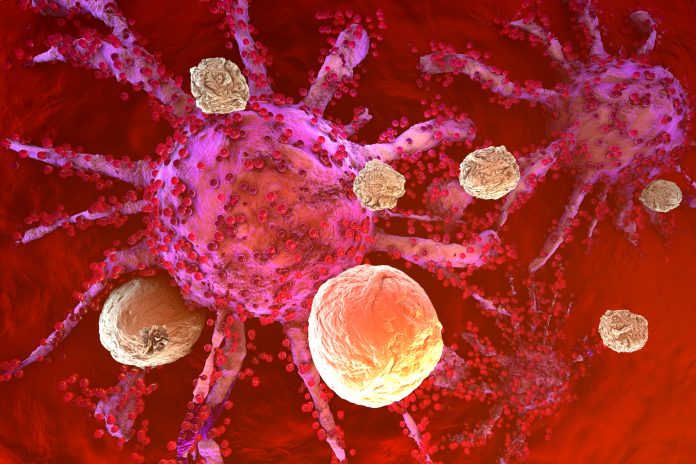
CAR T cells have shown limited efficacy in patients with solid cancers, despite dramatic success in some hematologic malignancies, according to the researchers. Now, preclinical studies by scientists at the Baylor College of Medicine and Texas Children’s Cancer Center showed that the addition of IL-15, which helps T cells survive and multiply, could improve the performance of CAR T cell-based immunotherapies.
The findings are published in Nature.
In the Phase I clinical trials discussed in Nature, researchers tested glypican-3 (GPC3) specific CAR T cells co-expressing IL-15 in adults with hepatocellular carcinoma (HCC) and children with GPC3-expressing solid tumors, including HCC. The first patient cohorts received GPC3-CAR T cells alone. The GPC3-CAR T cells were found to be safe, with peak cell expansion at two weeks post-infusion; however, no objective antitumor responses were observed.
GPC3-CAR T cells armed with IL-15 were evaluated in the second patient cohort, which again included adults and children with GPC3-expressing solid tumors. Patients enrolled in these trials had significantly increased CAR T cell expansion, with 33% (4/12) of subjects demonstrating an objective-antitumor response and 66% (8/12) experiencing stable disease for a minimum of four weeks. Patients receiving the GPC3-CAR T cells armed with IL-15 had a higher incidence of cytokine release syndrome, but symptoms were quickly resolved with additional medication.
“The findings are encouraging and a major step forward in enhancing the efficacy of CAR T cells for children and adults with solid tumors. The correlative studies from this trial have provided unique insights into the evolution of tumor-infiltrating CAR T cells, providing a blueprint to design the next generation of more effective, less toxic cellular immunotherapies,” said corresponding author Andras Heczey, MD, associate professor of pediatrics–hematology and oncology at Baylor and director of the Liver Tumor Program at Texas Children’s Cancer Center.
Scientists from the Dan L. Duncan Comprehensive Cancer Center, Center for Cell and Gene Therapy, Children’s Hospital of Philadelphia, Perelman School of Medicine at the University of Pennsylvania, University of Houston, St. Jude Children’s Research Hospital and Lineberger Comprehensive Cancer Center, and the University of North Carolina also contributed to the current study.
The study demonstrates that IL-15 increases the expansion, intratumoral survival, and antitumor activity of GPC3 CAR T cells in patients. The findings highlight the potential of IL-15-modified CAR T cells to improve treatment outcomes in solid tumors.






